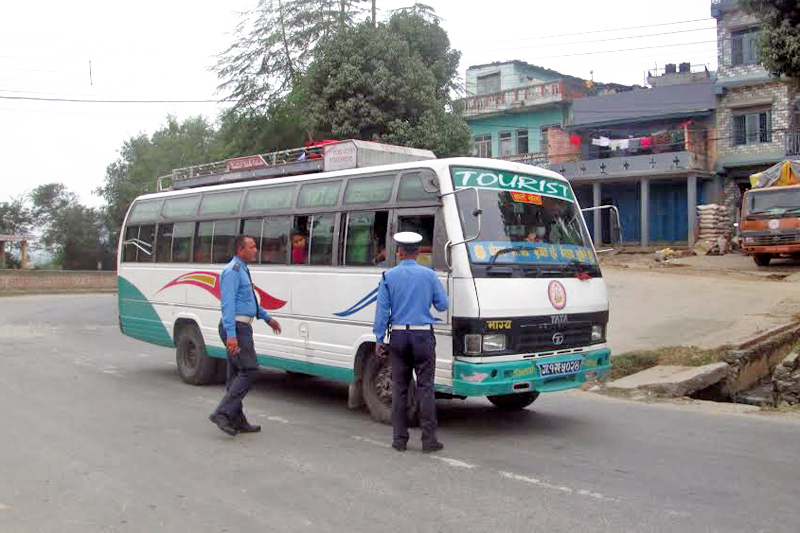Ban on needless honking comes into effect
Kathmandu, April 14
If you are in the habit of honking horn pointlessly while behind the wheel, then you’d better shun it now. Otherwise, on-duty traffic police might punish and make you cough up a good fine.
A notice issued by the Metropolitan Traffic Police Division informed that it has imposed a ban on honking horn needlessly under Section 164 (c) of the Motor Vehicle and Transport Management Act, 1993 in the Kathmandu Valley with effect from today.
“No one shall blow horn in the circumstances other than the invisibility of vehicles coming from the opposite direction and the higher chance of accident in the event of not blowing the horn,” said DSP Sabin Pradhan.
This provision shall be complied with by all public, private, tourist and government-owned vehicles, both two-wheelers and four-wheelers.
Emergency vehicles, ambulances, fire engines and police vans/jeeps shall not be obliged to follow the rule.
The traffic cop may fine an offender with an amount of up to Rs 500 if he/she is found blowing horn without reason. Needless honking is a major factor causing noise pollution in the Valley where more than 850,000 vehicles ply daily.
With increasing number of vehicles and limited road length in urban settlements of the Kathmandu Valley, the problem of traffic congestion, accidents, air and noise pollution have become serious issues. Noise pollution in commercial places, new and old residential areas and tourist spots of Kathmandu Valley exceed the Guidelines for Community Noise set by the World Health Organisation.
According to Environmental Statistics of Nepal-2013 released by the Central Bureau of Statistics, five traffic areas go over the limit or permissible level of 70 decibels (dB) for road traffic noise. The statistics list Kupandole as the most noise-polluted traffic area with 77 dB noise level followed by Putalisadak with 75 dB, Kalanki 74 dB, Maitighar 71 dB and Suryabinayak 71 dB during the daytime.
Similarly, commercial and residential areas such as Asan Chowk (74dB), Manbhawan (71db) and Naya Bazaar (64 dB) are said to be equally affected by noise pollution.
Human ear can tolerate only 26 decibels of sound, say the WHO.
Sound exceeding 70 dB is detrimental to health and can cause headache, irritation, fatigue, restlessness, stress, distraction and sleep loss. Regular exposure to noise can cause hypertension, temporary or permanent hearing loss, stress, sleeplessness, fright and distraction, among other health problems.






